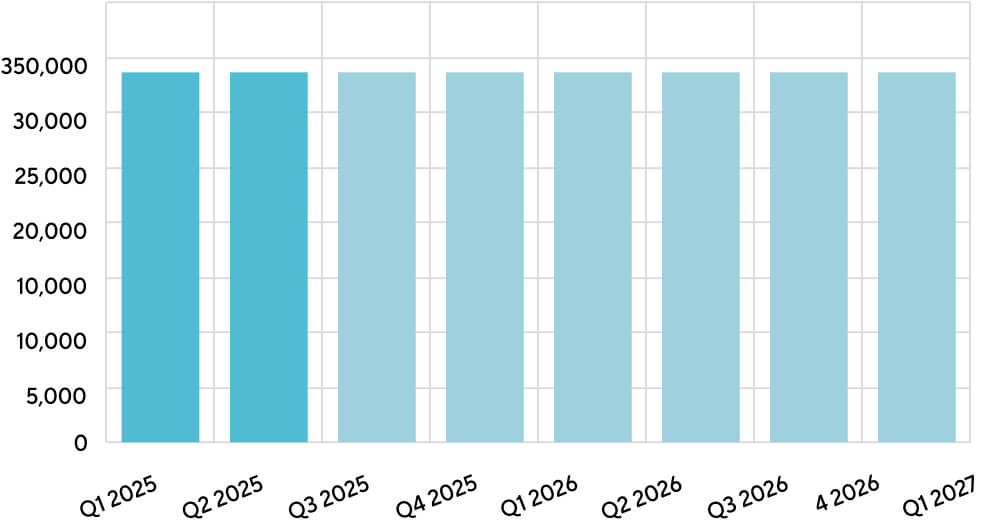How Spectora unified its finance stack and scaled with Everest
Industry
SaaS
Size
100 employees
Location
Global
Since deploying Everest, Spectora has:
Streamlined its month-end close and consolidated reporting
Eliminated manual invoicing errors and spreadsheet-based workaround
Leveraged AI for variance analysis and reporting insight
Streamlined its month-end close and consolidated reporting
Eliminated manual invoicing errors and spreadsheet-based workaround
Leveraged AI for variance analysis and reporting insight
After an aquisition, they had two finance stacks
Spectora, a leading home inspection software company backed by Radian Capital, was growing fast, and so was the complexity of its financial operations. After acquiring HomeGauge in early 2025, Spectora faced the challenge of consolidating two different finance stacks: one running on QuickBooks, the other on Intacct. Each system had bolt-ons for billing, tax, and expenses, creating disconnected workflows and manual reconciliation overhead.
The finance team had deep experience with legacy systems and knew their limitations. Traditional ERPs often came loaded with features that teams didn’t use, and required significant administrative overhead just to maintain day-to-day operations. Lighter-weight alternatives lacked the enterprise capabilities needed to scale. The team wanted something that could support multi-entity structure, revenue recognition, and third-party integrations without the tradeoffs of traditional ERP.
Everest unified their finance operations in one system
Spectora selected Everest after participating in its early access program and getting hands-on experience with the platform. Everest offered a rare combination of enterprise-grade capability and user-friendly design. The platform delivered ASC 606-compliant revenue recognition, multi-currency and multi-entity support, and smooth integration with existing tools like Brex.
Unlike systems that required full-time administrative support, Everest was flexible and intuitive enough to be managed directly by the finance team. Workflows reflected how the team already operated, rather than forcing them to adapt to the limitations of the platform. Even though AI features weren’t a priority initially, the team found real value in tools like flux analysis and reporting automation, and later shared those results with other portfolio companies.
“Everest's unique approach to AI—empowering ERP business users to develop, test and safely merge their own agents—has changed my mind. I can now see real value in these AI tools.”
Transforming the Finance Stack
Before Everest, Spectora and HomeGauge each relied on siloed systems, with a range of tools including QuickBooks, Intacct, Stripe, Chargebee, TaxJar, Avalara, Gusto, Expensify, and spreadsheets. These tools were not deeply integrated, and required constant manual work to stay aligned.
With Everest, the company launched a multi-phase consolidation plan to bring both entities and future acquisitions into a single ERP platform.
Core improvements included:
- Revenue recognition aligned with ASC 606
- Multi-entity consolidation and GAAP reporting
- Native integrations with tools like Brex
- Customizable financial reports built in-platform
- AI-assisted variance analysis and business user friendly agent development
Everest replaced manual processes with streamlined workflows, improved accuracy, and eliminated the need for redundant tools. The team now operates with greater visibility into performance and fewer workarounds.

How Everest transformed the accounting function
Much of the team’s time was spent deep in the general ledger, manually creating journal entries, posting transactions, and navigating disconnected systems to track down data. These tasks were time-consuming and repetitive, leaving little room for strategic analysis or proactive reporting.
With Everest, those manual workflows are automated or significantly streamlined. Core accounting functions that once required constant oversight now run in the background, allowing the team to redirect their time toward higher-impact work. Instead of managing transactions, they’re now building reports for department heads, preparing board-ready financials, and delivering analysis that drives decision-making across the company.
Built-in tools like period-over-period flux analysis and AI-powered insight generation help the team spot trends and anomalies quickly. Custom reports can be created in just a few clicks, giving finance the ability to support stakeholders across the business with tailored, timely information without needing to export data or rely on spreadsheets. The result is a finance function that operates with greater speed, visibility, and value.
“Built-in tools like period-over-period flux analysis and AI-powered insight generation help the team spot trends and anomalies quickly. ”




The Results
Since deploying Everest, Spectora has:
Streamlined its month-end close and consolidated reporting
Eliminated manual invoicing errors and spreadsheet-based workaround
Leveraged AI for variance analysis and reporting insight
Streamlined its month-end close and consolidated reporting
Eliminated manual invoicing errors and spreadsheet-based workaround
Leveraged AI for variance analysis and reporting insight
A smarter way
to scale finance
Spectora replaced disconnected systems and manual processes with a modern ERP that fits the needs of a growing SaaS business. If your finance stack is fragmented or holding back operational efficiency, Everest can help you simplify, standardize, and scale without the cost and complexity of traditional ERP.
See how Everest
can transform
your operations
Discover how Everest empowers finance and operations leaders to
drive faster growth, smarter decisions, and stronger margins.



